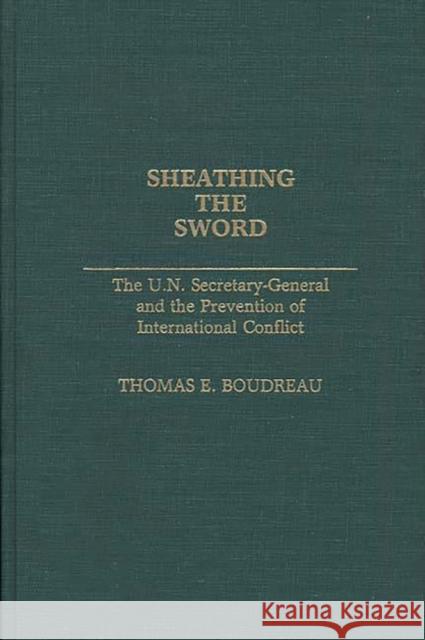Sheathing the Sword: The U.N. Secretary-General and the Prevention of International Conflict » książka
Sheathing the Sword: The U.N. Secretary-General and the Prevention of International Conflict
ISBN-13: 9780313261091 / Angielski / Twarda / 1991 / 208 str.
The role of the Secretary-General, as mandated in the Charter of the United Nations, is to enhance the capacity of the United Nations to maintain peace through the prevention and resolution of international conflict. Based on an in-depth understanding of both the pertinent articles of the Charter and the international reach of the Secretary-General's position, this volume examines and evaluates the diplomatic resources currently available to the Secretary-General in the area of crisis prevention, and recommends measures intended to further define the office's responsibilities and strengthen its preventive powers.
An outline of the legal and political structure of the Secretary-General's authority, followed by a review of each of the five Secretaries-General's efforts with respect to the avoidance of international conflict from 1945 to 1987 presents information which demonstrates the need for improved preventive resources. Reforms instituted by Perez de Cuellar from 1982 to 1987 are applauded and examined in detail, as the study then turns its attention to the present status of the Secretary-General's position. Convinced that the prevention of international conflict will be well-served by increasing the office's direct involvement, Thomas E. Boudreau proposes a global system of conflict identification that will enable the Secretary-General position to fulfill its intended role. A select bibliography, general subject index, and appendixes which include relevant reference materials complete the work.











